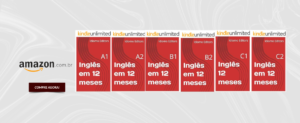Bem-vindo à aula sobre “Must / Might for Deductions”. Nesta lição, você aprenderá a usar “must” e “might” para fazer deduções em inglês. Vamos cobrir as formas mais comuns, como formar frases afirmativas, negativas e interrogativas, e como aplicá-las em diferentes contextos.
Usos de “Must” e “Might” para Deduções
Must é usado para fazer deduções fortes, quando você tem quase certeza de algo.
Might é usado para fazer deduções fracas, quando algo é possível, mas não certo.
- Must: He must be the new manager. (Ele deve ser o novo gerente.)
- Might: She might come to the party. (Ela pode vir à festa.)
- Must not: They must not know about the surprise. (Eles não devem saber sobre a surpresa.)
- Might not: It might not rain tomorrow. (Pode não chover amanhã.)
Exemplos de Frases
- He must be tired after such a long trip. – Ele deve estar cansado depois de uma viagem tão longa.
- She might not know the answer to that question. – Ela pode não saber a resposta para essa pergunta.
- They must have left already. – Eles já devem ter saído.
- It might be true, but I’m not sure. – Pode ser verdade, mas eu não tenho certeza.
- You must be very proud of your son. – Você deve estar muito orgulhoso do seu filho.
- He might be at home, or he might be at work. – Ele pode estar em casa, ou ele pode estar no trabalho.
Exercícios
Parte 1: Complete as Frases com “Must” ou “Might”
- He ____ be the new manager. (must)
- She ____ come to the party. (might)
- They ____ know about the surprise. (must not)
- It ____ rain tomorrow. (might)
- He ____ be tired after such a long trip. (must)
Parte 2: Traduza as Frases para o Inglês usando “Must” ou “Might”
- Ele deve ser o novo gerente. (He must be the new manager.)
- Ela pode vir à festa. (She might come to the party.)
- Eles não devem saber sobre a surpresa. (They must not know about the surprise.)
- Pode não chover amanhã. (It might not rain tomorrow.)
- Ele deve estar cansado depois de uma viagem tão longa. (He must be tired after such a long trip.)
Parte 3: Reescreva as Frases usando “Must” ou “Might”
- He ____ be the new manager. (must)
- She ____ come to the party. (might)
- They ____ know about the surprise. (must not)
- It ____ rain tomorrow. (might)
- He ____ be tired after such a long trip. (must)
Parte 4: Complete as Perguntas e Respostas usando “Must” ou “Might”
- Q: Who is the new manager? (A: He ____ be the new manager.) (must)
- Q: Is she coming to the party? (A: She ____ come to the party.) (might)
- Q: Do they know about the surprise? (A: They ____ know about it.) (must not)
- Q: Will it rain tomorrow? (A: It ____ rain tomorrow.) (might)
- Q: Is he tired? (A: He ____ be tired after such a long trip.) (must)
Parte 5: Crie Frases usando “Must” ou “Might”
- (Ele deve ser o novo gerente.) (He must be the new manager.)
- (Ela pode vir à festa.) (She might come to the party.)
- (Eles não devem saber sobre a surpresa.) (They must not know about the surprise.)
- (Pode não chover amanhã.) (It might not rain tomorrow.)
- (Ele deve estar cansado depois de uma viagem tão longa.) (He must be tired after such a long trip.)
Respostas
Parte 1: Complete as Frases com “Must” ou “Might”
- must
- might
- must not
- might
- must
Parte 2: Traduza as Frases para o Inglês usando “Must” ou “Might”
- He must be the new manager.
- She might come to the party.
- They must not know about the surprise.
- It might not rain tomorrow.
- He must be tired after such a long trip.
Parte 3: Reescreva as Frases usando “Must” ou “Might”
- must
- might
- must not
- might
- must
Parte 4: Complete as Perguntas e Respostas usando “Must” ou “Might”
- must
- might
- must not
- might
- must
Parte 5: Crie Frases usando “Must” ou “Might”
- He must be the new manager.
- She might come to the party.
- They must not know about the surprise.
- It might not rain tomorrow.
- He must be tired after such a long trip.




